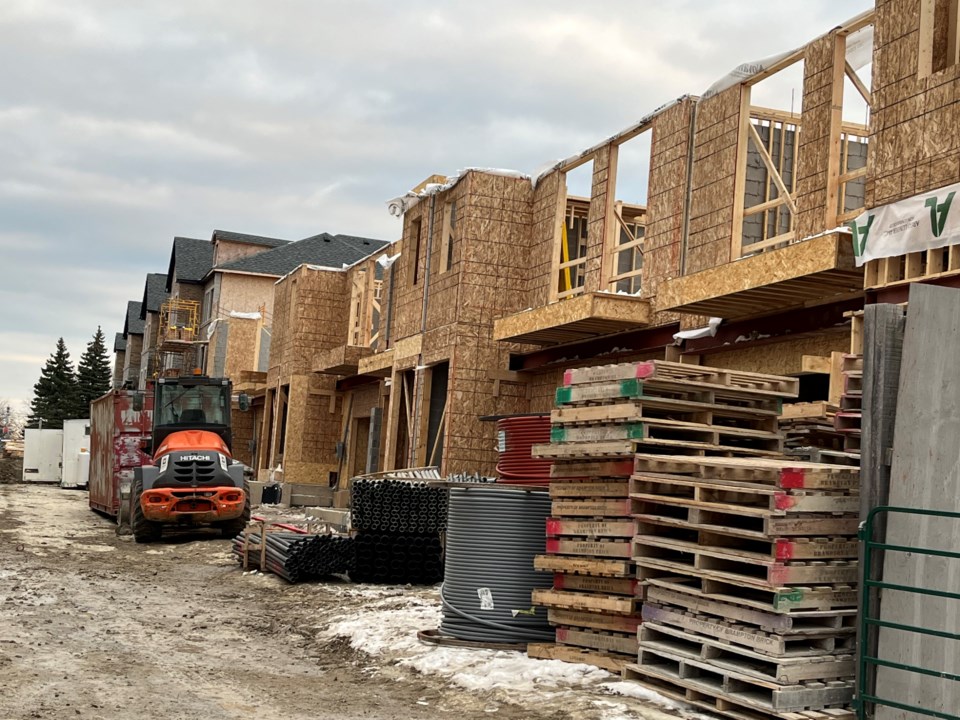Five million new homes by 2030.
This is the number of new homes Canada needs to build to meet its targets
While efforts are underway to accelerate construction, the country is rapidly losing affordable housing units.
According to Steve Pomeroy, a professor and special adviser to the Canadian Housing Evidence Collaborative at McMaster University, between 2011 and 2021 Canada lost more than 550,000 affordable rental units.
These units did not disappear.
They have been purchased by large investment companies or Real Estate Investment Trusts (REITS) who raise the rents to unaffordable amounts.
Historically, housing was seen primarily as a place to live and raise a family. However, as housing costs have surged, it has increasingly been treated as a commodity, fuelling further price increases. For many Canadians, especially younger generations, home ownership has become unattainable, while wages have failed to keep pace with rising rents and other living expenses.
According to data from Rentals.ca, rents have increased by 22 per cent in just the last two years.
The financialization of housing refers to the treatment of housing as a commodity for wealth generation and investment, rather than as a fundamental social good.
Why does this matter? As Leilani Farha, former UN Special Rapporteur on the Right to Housing, aptly states: “There is a huge difference between housing as a commodity and gold as a commodity. Gold is not a human right; housing is.”
While individual investments in income properties contribute to rising housing costs, the largest impact has come from big investment firms. Investors expect continuous growth in the value of their assets, which leads housing investment companies to prioritize maximizing profits for their shareholders. This might mean increasing rents on units in the buildings they buy, and they are purchasing at a rapid rate.
While not that long ago big financial firms had nothing to do with housing, they now own close to 400,000 suites or nearly 20 per cent of the purpose build multi-family rental units in the country.
When it comes to raising rents, it is not the little guys doing the damage, it is the big firms that are increasing the rents the most, as well as tripling the eviction filing rate.
Although rent controls exist in Ontario, loopholes allow landlords to raise rents beyond inflation. For instance, if a rental unit becomes vacant, landlords can charge any rent they choose. Similarly, rental units constructed after 2018 are exempt from rent controls. Additionally, landlords often renovate units to justify higher rents, a practice commonly referred to as "renoviction."
What, then, are the potential solutions?
The passage of the National Housing Strategy Act (NHSA) in 2019 was a good first step as it affirmed the federal government’s commitment to advancing the right to housing for everyone in Canada. However, further action is needed.
Proposed measures include reviewing the taxes paid by large investors, increasing the minimum down payment required for purchases, and enacting policies that limit the immense profits these investment firms generate.
In May of this year, the National Housing Council released a report with recommendations to Housing Minister Sean Fraser. In the report, they made recommendations around increasing, protecting, and diversifying affordable rental housing, taking steps to immediately protect tenant rights, and to protect the current affordable rental supply through a rental acquisitions program for non-market rental housing providers. The Liberal government included this recommendation in its spring 2025 budget.
Now is the time to unite our voices to ensure that every Canadian has access to safe, affordable housing. As Adam Vaughan once said, "someone experiencing homelessness is just a neighbour without a home." Let us work together to create meaningful change and be good neighbours.
Michael Braithwaite is the CEO of Blue Door, host of the housing and homelessness podcast On the Way Home, board chair of the youth homelessness-focused organization A Way Home Canada, and a tireless advocate for people experiencing homelessness.



